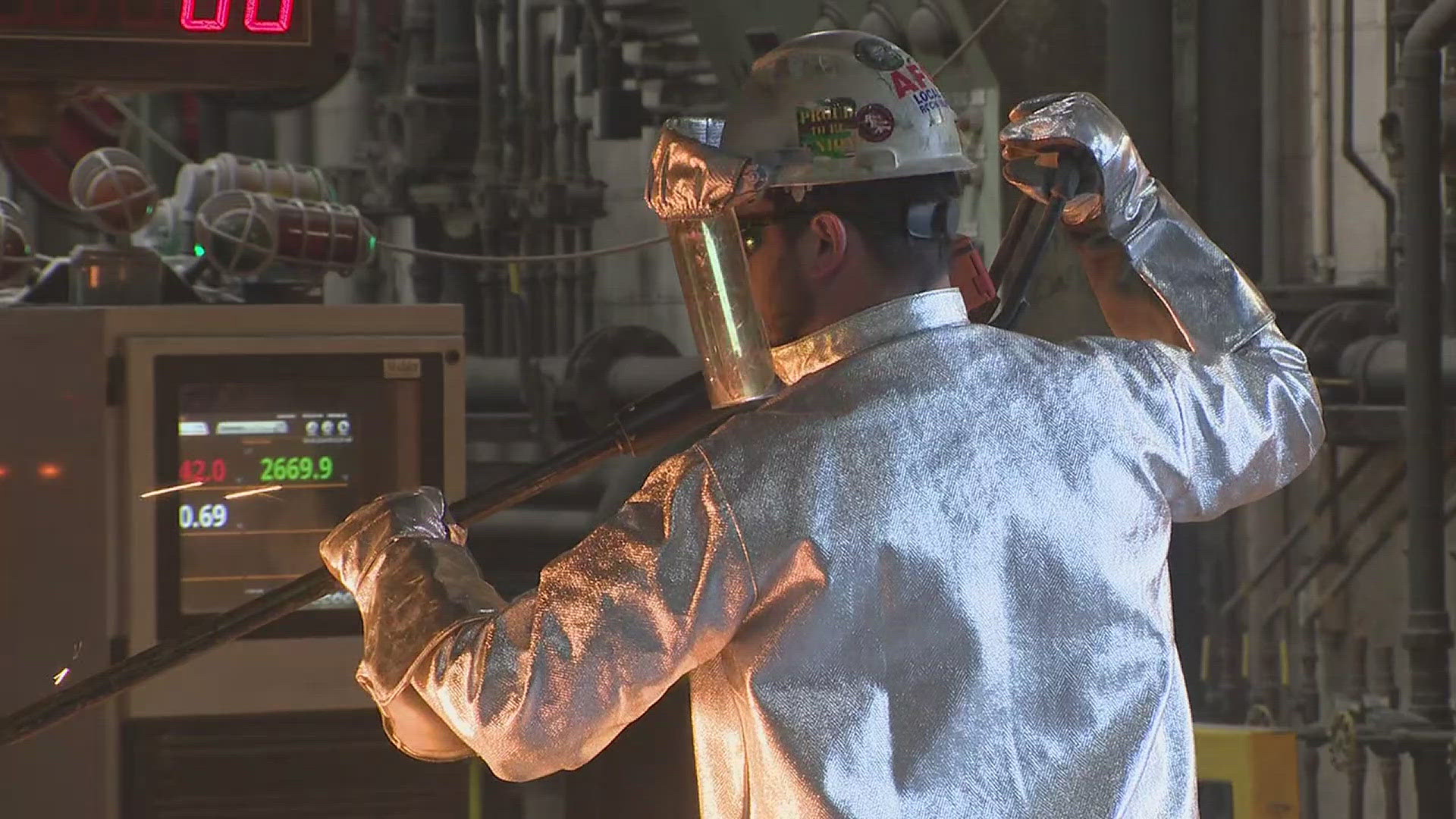ROCK ISLAND ARSENAL, Ill. — On Arsenal Island, there's always lots of irons in the fire at the Joint Manufacturing and Technology Center. The facility is the army's go-to manufacturer. At any given time, some 300 projects are running through its production lines.
"What we have is the capability that's unique to JMTC is vertically integrated metal manufacturing, but we do it from raw material all the way up to a finish, plated, painted part," JMTC Commander Col. David Guida said.
The JMTC employs about 800 people right now and Guida said he's seeing quite a bit of hiring as the factory's workload continues to grow.
"We have been getting more work in the last 13, 14 months since I've been here," he said.
"I think the biggest reason is, we're a one stop shop," Weld Supervisor Clint Voss said. "We can order our material in, we can cut it, we can machine it, we can weld it, we can plate it, and we can paint it and then assemble it and then it goes out the door."
One of its projects is a new battle damage repair fabrication effort. They can 3D print metal repair parts for equipment and send it straight out to units in the field.
Guida attributes part of the workload increase to the fact that Rock Island has the only foundry in the army. JMTC does casting and forgings for the entire Department of Defense. It can also contract with businesses in between DoD work. This summer, it renovated the old Gettysburg Address plaque that was outside the old Rock Island County Courthouse.
"One of the things that we've recognized in the commercial industry is that capability for castings and forging has greatly reduced over the last 10 years, probably almost a 50% reduction in 10 years," Guida said. "So the JMTC is filling a lot of that gap."
It's now focusing efforts between now and 2030 to modernize its casting and forging capabilities to meet those needs. Guida said it will include things like new furnaces and sand printers.
"A lot of stuff that gives us the ability to pour a lot faster and pour more often," he said. "Take our capability right now and by 2030, we should be able to do four times as much in the same period of time."
Currently, the foundry can pour twice in an eight hour shift. With this modernization, it'd be able to pour once an hour, for eight pours in a shift.
"We're all one team," Voss said. "We need to keep getting the work to protect the soldiers in the field."

